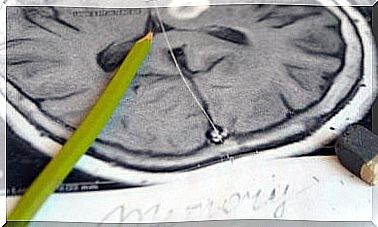6 Problems When Your Gut Bacteria Go Out Of Control
Did you know that due to the close relationship between the gut and the brain, excess bacteria in the gut can drift into memory problems and even anxiety?

In the intestine lives a microbial community known as the intestinal flora, which is rich in intestinal bacteria.
Although its importance has been ignored for a long time, it is essential for digestive processes as well as for metabolic and immune health.
In a healthy organism, this group of beneficial bacteria regulate digestive pH and, at the same time, create a protective barrier against agents that affect the body.
However, due to poor eating habits, antibiotic consumption and stress, their activity can be compromised creating an imbalance that puts health at risk.
As a result, a series of reactions occur, although in principle they may seem harmless, which over time become chronic and difficult to treat.
It is therefore essential to know how they manifest themselves when bacteria are out of control and, if necessary, to take the appropriate measures to restore them.
Discover them all!
1. Digestive diseases and intestinal bacteria

Since bacteria live and multiply in the intestine, their imbalances cause negative reactions in the digestive system.
This is due to the fact that harmful microorganisms have the opportunity to increase exponentially. Thus, they affect the processes responsible for breaking down food and absorbing nutrients.
As a result, the presence of acidic fluids and toxins increases and in turn drifts onto bothersome symptoms such as:
- Gas and flatulence
- Abdominal distension
- Ardor in the stomach
- Gastroesophageal reflux
- Duodenal ulcers
- Gastritis
- Diarrhea
- The constipation
- Irritable bowel syndrome
2. Cognitive problems
Although some people ignore it, the gut maintains a strong connection with brain activity and, as a result, its imbalance can cause negative reactions in cognitive functions.
Microbial flora plays a role in the production of several important neurotransmitters, and when they become imbalanced, this can lead to memory problems, anxiety, and other symptoms that affect thinking.
3. Nutritional deficiencies

The healthy bacteria that live in the intestine are fundamental for the body to perform a correct synthesis of vitamins, minerals and other essential nutrients.
As they lose their balance and become harmful, the digestive process slows down and the ability to optimally absorb nutrients decreases.
It is therefore difficult at first to realize it because the body keeps reserves of nutrients, but over time a series of symptoms appear which indicate that these are considerably reduced.
Among the most common impairments we find:
- Vitamins D, K, B7 and B12.
- Minerals: magnesium and calcium.
4. Skin disorders
So far the internal and external factors which are linked with the appearance of the disorders which affect the health of the skin are numerous.
Among them, intestinal health keeps a close link especially with regard to the role it plays in detoxification and absorption of nutrients.
Suffering from any of these skin conditions can alert us to a problem with unbalanced gut bacteria :
- Acne
- Rosacea
- Psoriasis
- The exema
5. Autoimmune diseases

Autoimmune diseases are categorized as chronic. Because the body attacks itself in its concern to fight the agents it considers dangerous.
This precisely makes it difficult to detect and treat. Especially because the initial symptoms are usually confused with other usual conditions.
Although its origin varies and must be analyzed by an expert, it should not be ruled out that it may have a connection with the intestines in poor health.
This is due to alterations in bacteria which increase the rate of tissue inflammation and can worsen the development of symptoms.
Some of these diseases are:
- Rheumatoid arthritis
- Hashimoto’s thyroid
- Inflammatory bowel disease
- Celiac disease
- Type 1 diabetes
6. Chronic stress linked to intestinal bacteria
Stress is an emotional imbalance that is normally triggered due to multiple internal and external factors.
Even if faced with certain situations it is inevitable, it can also be triggered as a reaction to imbalances in intestinal bacteria.
In these cases there is an increase in the segregation of cortisol levels which, added to toxins, affect the production of hormones for well-being.
Going through chronic, recurring stress attacks, despite taking the necessary steps to control them, is an equivocal sign of an unhealthy gut.
Identifying any of these problems is more than enough reason to improve habits that help restore gut health.
Eating a good diet and avoiding constant exposure to toxins are some of the simple steps you can take to avoid these imbalances.









